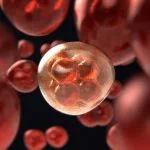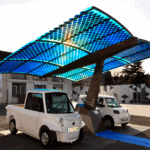How to write a successful H2020 MSCA-ITN proposal?
Author
Christa Ivanova, PhD
Publication Date
March 04, 2017
Keywords
H2020 MSCA‑ITN
Innovative Training Networks
European Training Networks
innovation orientation
European Industrial Doctorates
European Joint Doctorates
Your microfluidic SME partner for Horizon Europe
We take care of microfluidic engineering, work on valorization and optimize the proposal with you
This content is out of date. H2020 MSCA-ITN became Horizon Europe MSCA doctoral fellowship in 2021. Check out our updated page: How to write a successful HE MSCA doctoral network proposal?
Your Horizon Europe MSCA-ITN Network Proposal – Our tips and tricks in a glance

- Reviewers have no time! Go straight to your point to convince them.
- Surprisingly, training is more important than science: What makes an MSCA-ITN proposal become a must-be-funded project
- Intersectoral, interdisciplinary, international: Gather the right players and win the game!
How to convince the reviewers that your MSCA-ITN proposal should be funded?
The reviewers will have to read lots of proposals in a very short time. Make their lives easier!
→ Tip #1 – Pitch your MSCA-ITN project in a one-page format.
Answer all the essential questions on the first page: explain the societal challenge the project will address, the solution proposed, and the significant steps to succeed.
→ Tip #2 – Summarize your ideas at the beginning of each paragraph, and give short and sharp conclusions at the end of each section.
Keep only the essential; be straightforward and structured.
→ Tip #3 – The MSCA-ITN guide for applicants is your best friend!
Be sure to answer 100% of the points mentioned in the MSCA-ITN guide.
How to stand out from the crowd with your MSCA-ITN proposal?
Keep in mind the primary goal of an ITN project: to train highly qualified ESRs.
→ Tip #4 – Invest time in building your training program.
The project’s excellence is crucial, but the training program is at least as necessary. Be specific and stay credible. Show how your MSCA-ITN will benefit the PhD students’ careers.
→ Tip #5 – The EU only funds outstanding consortia addressing significant societal or technical challenges.
To get your Horizon Europe MSCA project, solve societal issues.
What is an outstanding MSCA-ITN consortium for EU?
→ Tip #6 – Respect the 3 “I”s rule: INTERDISCIPLINARY, INTERNATIONAL, INTERSECTORAL
Interdisciplinary
Expertise must complement each other, and all the partners must be indispensable.
International
International collaboration is needed to gather the best researchers in each field!
Intersectoral
The public and private sectors have to complement each other to train the ESR and meet the objectives of the ITN project.
→ Tip #7 – Complementarity of the ESR’s project, but no dependency.
→ Tip #8 – ESRs must be trained by the best!
Each ESR should have an academic and non-academic supervisor.
Feel a bit lost? Check out our page What is a MSCA-ITN!
Our microfluidic expertise and MSCA-ITN projects
We will be glad to participate in your project. Visit our dedicated webpage to learn more about our expertise as H2020 and Horizon Europe partner!
Curious about the calls currently open?
We are particularly interested in the following calls but remain open to any collaboration!
- EIC WORK PROGRAMME that supports all stages from R&D to industry for game-changing innovations
- HORIZON EUROPE RIA CALLS, specifically focusing on health and food, bioeconomy, natural resources, agriculture, and environment
Have a look at our funded MSCA-ITN proposals:

Protometabolic pathways: exploring the chemical roots of systems biology

Entrepreneuring dynamic self-organized interfaces in photocatalysis: a multidisciplinary training network converting light into products
Check the Horizon Europe tips and tricks
- What did an H2020 MSCA–ITN actually pay for, once you strip away the flashy terms?
A PhD learning setup. Cash goes toward hiring sharp, on-the-move new researchers – guided and developed via a clear plan mixing projects with real-world abilities, including cross-sector experience from the start. The project’s just the ride; what matters is where it takes them.
- ETN vs. EID vs. EJD – what are the structural differences that drive the narrative?
ETN (European Training Network)– super adaptable; brings in PhD candidates through a group of three or more host organisations based in separate nations.
EID (European Industrial Doctorate) means each researcher gets guidance from both university and company staff – most training happens outside academia, since they spend over half their time there. One side handles theory, while the other focuses on real-world tasks, so skills grow through hands-on experience instead of just lectures. The setup fosters close collaboration across sectors, helping bridge gaps between academic and practical work demands.
EJD (European Joint Doctorate): three degree-awarding institutions from three countries. The schools sync courses so everyone follows the same plan. Degrees can be shared between schools or issued separately. Each partner must grant doctorates and join under one system.
Your work plan should follow these rules from the start – don’t adjust it after. The way you’re supervised needs to match now, not later on. Training hours have to be lined up right away, not changed afterward.
- Who’s seen as an “early-stage researcher,” while also needing to follow mobility rules?
ESR status meant the person had less than 4 years of full-time research experience and hadn’t earned a PhD when they joined. Mobility rule: you couldn’t have lived or spent most of your time in the hiring country for more than a year within three years prior to starting. Both rules had to be followed – no exceptions.
- What mattered more to reviewers – research or practice?
Some preferred one approach – others mixed – but coaching tipped the balance. To stand out, you needed more than average; sharp methods mattered most. Influence relied on actual courses covering both hard and soft skills, known mentors, logged hours, ways to check progress, and collaboration across fields without just going through the motions. Reviewers wanted proof of shared research habits, such as accessible datasets, storage locations, step-by-step guides, and realistic safety plans built on real lab experience.
- What’s the best way to set up temporary job swaps without messing things up?
A goal matters more than location. Each placement should have a clear aim, paired with access to specific tools or data at the host site, alongside something concrete to show later, like a written method, a cleaned data set, or a tested model idea, tied to a doable timeline. Total time away from base must stay under 33% of an ESR’s project length, except when the training design (EID) truly calls for extended stays outside academia.
- What does a convincing training programme look like on paper?
A schedule, not a flyer. Each section gets: name, time spent, who’s teaching, who joins – every ESR or just some tracks – with how it runs: doing tasks, group talk, web-based. Check-in ways plus what comes out: write-up, numbers set, software bits. Toss in team-wide moments like summer camps, coding sprints, and lab face-offs across sites. Spell out mentor habits: meet-ups every two weeks, review panels four times a year, and a big committee meeting once a year.
- How’s it going with money stuff and price per item – what might really cause problems?
ITN went with cost per researcher-month, covering living expenses, moving support, a possible family top-up, along with institute funds for research, training, events, and admin and running costs. Math adds up; trust doesn’t come so easily. Match supplies, lab time, tools, software use, trips, staff rotations to actual tasks. List specific gear and how you’ll get access, so it feels doable, not just hopeful.
- Big mistakes that kill solid pitches?
Three patterns recur:
-Treating ITN as an ordinary RIA – add a training section. Since the group wants a PhD setup, build that from scratch.
-Some groups work together but don’t say what they’ll do. Sort this by sharing supervision, setting clear short-term roles, and assigning specific people to outside training duties.
-Risk talk won’t help – swap it out for real steps: keep spare supplies, set up extra production paths, lock in lab hours ahead, plan repeat runs, and also share data at key stages.
- Microfluidics case – how precise should we really get?
Name the chip types – like flow-focusing droplet makers, inertial sorting, or impedance counting – along with build layers such as glass-silicon, SU-8 paired with PDMS, or basic thermoplastics. Mention speed goals from 1 to 5 thousand drops per second, accuracy levels showing less than 5% variation, how low they can detect signals, plus ways to calibrate them. Be sure to share usable outputs: small CAD or GDS files, full layout files, step-by-step guides, test datasets, and results checked across different labs. Reviewers favor hard numbers that others can repeat.
- Which group setup usually performs better than average?
A solid group of institutions that grant degrees and have strong track records in guiding students, teamed up with practical partners doing hands-on work – like managing tools, handling data, or helping supervise. Each early-stage researcher gets two mentors from different countries and fields, plus a dedicated data manager, an ethics officer, and someone focused on training support. In joint doctorates, nail down degree requirements and how the thesis will look right away; for industrial projects, sort out work-time splits and who owns what results before starting.
- Where can a niche small firm, such as the Microfluidics Innovation Center, actually change things?
In testing and use, MIC sets up entire experiments – like chips, fluid handling, sensors, or automation – makes tailor-made microfluidics, and also puts together working models, so learning happens through action, never just talk. Across Europe’s team projects, we usually boost the chances of winning grants well above average because plans feel doable: labs can start right away, timelines make sense, staff moves are clear, and there’s a solid line from early model to real-world application.
